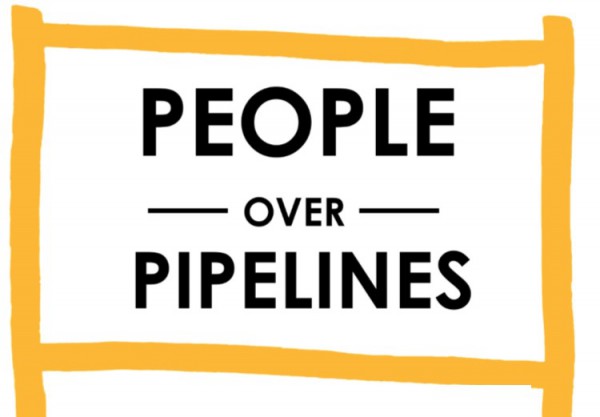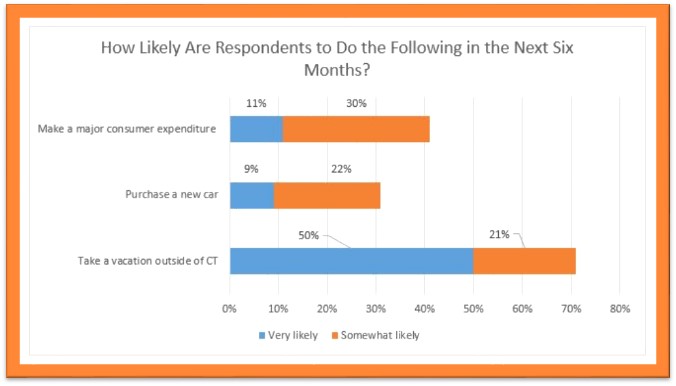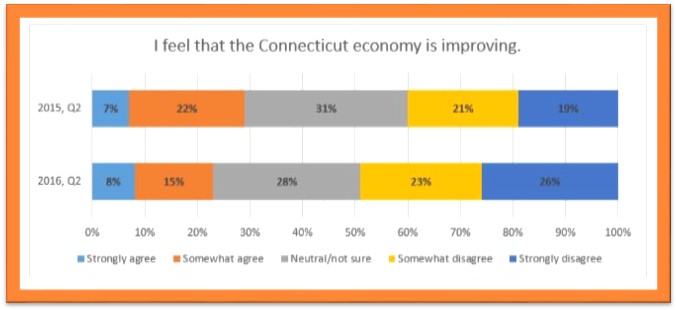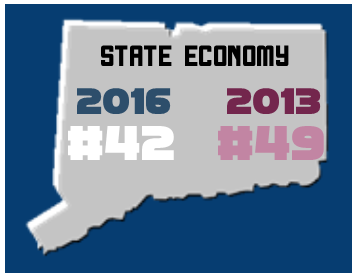Opponents to Natural Gas Pipeline Rally to Grow Public Interest
/A planned natural gas pipeline in Connecticut and neighboring states brought protesters out in Suffield and East Granby, calling attention to potential adverse environmental impacts. Kinder Morgan’s natural gas project, Connecticut Expansion, is scheduled to begin construction in Suffield and East Granby shortly, according to the Connecticut Sierra Club, which organized the protest and has been conducting a public education initiative opposing the plans.
The People Over Pipelines March, held Saturday, mirrors similar efforts held in Massachusetts, aimed at drawing attention the ratepayer subsidized gas pipeline expansion. Participants followed the Kinder Morgan pipeline route in Suffield and East Granby. Co-sponosrs of the effort included 350 CT, Toxics Action Center, Bethlehem Ecodefense and Berkshire Environmental Action Team.
At an accompanying rally, Sierra Club’s Martha Klein said, “We’re here today to fight for the future of our planet, but the real reason to oppose this new pipeline is that it’s expensive, unneeded and what’s worse we’re paying for it!” The high pressure, large diameter fracked gas pipeline is being built in three states Sierra Club officials point out, noting that methane (natural gas) causes global heating that is 100 times worse than carbon dioxide in the near term.
Diane Lentakis of 350 CT added, “I’m marching here today to oppose a new taxpayer-funded pipeline because natural gas presents many of the same problems as oil and coal: toxic emissions, huge transport costs, and huge risks of accidents. I want Connecticut to be a leader in our country’s transition to clean energy. We can take a major step towards this goal by opposing this costly pipeline and instead investing in renewable and clean energy. “
Sierra Club officials explain that Connecticut residents have been paying for the expansion of fracked gas in the state through ratepayer increases on their electric bill since 2013, as a result of state lawmakers approving a “Comprehensive Energy Strategy.” In 2015, the General Assembly passed a law that mandated future ratepayer subsidies for multi-state gas pipeline projects, which will lead to ratepayers subsidizing the construction of interstate gas pipelines.
The state Department of Energy and Environmental Protection (DEEP) “is the agency in the state that both procures large natural gas projects, and also issues permits for aspects of the construction. The aim of the State energy plan is to create thousands of new gas customers, through advertising and ratepayer subsidies. Only the two large corporations, Eversource and Iberdrola, will benefit from the expansion. They have a monopoly on gas distribution in the area,” Sierra Club pointed out in a news release highlighting the issue. Eversource owns Yankee Gas; Iberdrola owns Connecticut Natural Gas and Southern CT Gas.
Sierra Club officials indicate that it is “not likely” that Connecticut citizens will benefit from the pipeline, stating that “Natural gas is not cheaper, cleaner or safer than other fuels. Gas, which is methane, is currently more expensive than heating oil in Connecticut and according to the International Governmental Panel on Climate Change (IPCC), worse for the environment than oil or coal. Methane extraction (fracking), use, and transport produce significantly more greenhouse gas emissions causing worse climate change than other fossil fuels.”
 Studies show that there is no unmet demand for natural gas in Connecticut, opponents of the planned pipeline said, stressing that gas pipelines are routinely only half full now and electricity demand in New England has remained virtually flat over more than 10 years. Proponents have stated otherwise.
Studies show that there is no unmet demand for natural gas in Connecticut, opponents of the planned pipeline said, stressing that gas pipelines are routinely only half full now and electricity demand in New England has remained virtually flat over more than 10 years. Proponents have stated otherwise.
According to DEEP, there are approximately 590 miles of transmission pipeline in Connecticut, including 16 miles in Long Island Sound. These pipelines range in size from 2” to 36”. Pressures range from 750 pounds per square inch gauge (psig) to 1,440 psig. There are 5 compressor stations in Connecticut with a total of approximately 110,300 horsepower. The pipelines currently in place:
- Algonquin Gas Transmission (AGT - Spectra Energy Corporation) originates in New Jersey where it connects to Texas Eastern and runs from Danbury northeasterly to Thompson, with major spurs to North Haven and New London.
- Iroquois Gas Transmission System (IGT) starts at the Canadian border, enters Connecticut at Sherman and runs southeast through Milford, then offshore to Long Island.
- Tennessee Gas Transmission (TGP -Kinder Morgan) starts in the Gulf, enters Connecticut in Greenwich, runs northeasterly leaving Connecticut in Suffield, with a spur from Massachusetts to Torrington.
The Sierra Club will be conducting a public education session on the pipeline at Quinebaug Valley Community College on Thursday, Sept. 29 at 1 p.m.


 FBI Special Agent Judy Eide, a 25-year veteran currently assigned to the Bureau’s New Haven Division Computer Crime squad and a coordinator of the Connecticut Chapter of InfraGard, will be one of the speakers. Also on the program is Mark Ramsey the Chief Information Security Officer for ASSA ABLOY – Americas and President of the Connecticut Chapter of InfraGard. Ramsey also teaches at Fairfield University, and previously held information security positions at Stanley Black & Decker and General Electric.
FBI Special Agent Judy Eide, a 25-year veteran currently assigned to the Bureau’s New Haven Division Computer Crime squad and a coordinator of the Connecticut Chapter of InfraGard, will be one of the speakers. Also on the program is Mark Ramsey the Chief Information Security Officer for ASSA ABLOY – Americas and President of the Connecticut Chapter of InfraGard. Ramsey also teaches at Fairfield University, and previously held information security positions at Stanley Black & Decker and General Electric.
 “We want this to be a must-attend event for anyone responsible for strategic technical decisions within their organization,” says Steven Bulmer, Walker’s vice president of professional services. “Tech Impact is really a self-defining event based upon the intense interest and demand from our clients, especially for information security services.”
“We want this to be a must-attend event for anyone responsible for strategic technical decisions within their organization,” says Steven Bulmer, Walker’s vice president of professional services. “Tech Impact is really a self-defining event based upon the intense interest and demand from our clients, especially for information security services.”
 At #296 is Glastonbury-based Fiondella Milone & LaSaracina. FML was founded in 2002 “for the purpose of providing professional auditing, tax and business consulting services to a wide range of clients and industries throughout the Northeast,” the company’s website indicates. After working together at Ernst & Young, the firm’s founding partners, Jeff Fiondella, Frank Milone and Lisa LaSaracina launched FML.
At #296 is Glastonbury-based Fiondella Milone & LaSaracina. FML was founded in 2002 “for the purpose of providing professional auditing, tax and business consulting services to a wide range of clients and industries throughout the Northeast,” the company’s website indicates. After working together at Ernst & Young, the firm’s founding partners, Jeff Fiondella, Frank Milone and Lisa LaSaracina launched FML. counting newsletter and the award-winning National Benchmarking Report.
counting newsletter and the award-winning National Benchmarking Report.
 When individuals purchase a Keep Kids Safe plate, a portion of the fee goes to the Keep Kids Safe Fund, which “makes many worthy projects happen for youngsters.” The fund awards grants to schools, hospitals, municipalities and other non-profit organizations working to make all Connecticut children safer from severe and preventable injuries, according to the DMV website.
When individuals purchase a Keep Kids Safe plate, a portion of the fee goes to the Keep Kids Safe Fund, which “makes many worthy projects happen for youngsters.” The fund awards grants to schools, hospitals, municipalities and other non-profit organizations working to make all Connecticut children safer from severe and preventable injuries, according to the DMV website.
 Increasingly, residents believe that jobs are “very hard to get” in Connecticut compared with six months ago (from about one-quarter to one-third of those surveyed in Q2 2016 versus Q2 2015), and are, in growing numbers, saying they would rather leave than stay.
Increasingly, residents believe that jobs are “very hard to get” in Connecticut compared with six months ago (from about one-quarter to one-third of those surveyed in Q2 2016 versus Q2 2015), and are, in growing numbers, saying they would rather leave than stay. Forty-three percent, an increase from 40 percent in the year’s first quarter, answered “all of the above” when asked if education, libraries, public health, public safety and animal control could be provided regionally. Among those services individually, there was slightly greater support for a regional approach to public safety, slightly less for each of the others. The largest increase was for “all” of the services.
Forty-three percent, an increase from 40 percent in the year’s first quarter, answered “all of the above” when asked if education, libraries, public health, public safety and animal control could be provided regionally. Among those services individually, there was slightly greater support for a regional approach to public safety, slightly less for each of the others. The largest increase was for “all” of the services. The
The  A minimum-wage worker in Connecticut would need to work full time for 36 weeks, or from January to September, just to pay for child care for one infant. And a typical child care worker in Connecticut would have to spend 63.6% of her earnings to put her own child in infant care, according to the data.
A minimum-wage worker in Connecticut would need to work full time for 36 weeks, or from January to September, just to pay for child care for one infant. And a typical child care worker in Connecticut would have to spend 63.6% of her earnings to put her own child in infant care, according to the data.


 Wallingford-based
Wallingford-based 
 Also reaching the Inc. 5000 were
Also reaching the Inc. 5000 were  Votto Vines is a family-operated business focusing primarily on the importation and wholesale distribution of fine wines produced by leading boutique vineyards around the world as well as high-profile private label and wine licensing transactions.
Votto Vines is a family-operated business focusing primarily on the importation and wholesale distribution of fine wines produced by leading boutique vineyards around the world as well as high-profile private label and wine licensing transactions. e company has an office in Boston.
e company has an office in Boston.
 In 2013, Connecticut’s economy ranked 49th, and Governing said
In 2013, Connecticut’s economy ranked 49th, and Governing said 

 Just over three years ago, NBC Sports launched a new state-of-the-art 300,000 square foot facility headquartered in Stamford, on a thirty-three acre campus (formerly the home of Clairol). The facility brought NBC Sports, NBC Sports Network, NBC Olympics, NBC Sports Digital, and NBC Regional Networks all under one roof. Connecticut’s First Five program, providing financial incentives to major business entities to relocate to the state, helped get the deal done. At the ribbon cutting for the facility in July 2013, just off exit 9 along I-95, NBC Sports Group Chairman Mark Lazarus said it was “built for every conceivable media platform, known today or yet to be built or conceived.”
Just over three years ago, NBC Sports launched a new state-of-the-art 300,000 square foot facility headquartered in Stamford, on a thirty-three acre campus (formerly the home of Clairol). The facility brought NBC Sports, NBC Sports Network, NBC Olympics, NBC Sports Digital, and NBC Regional Networks all under one roof. Connecticut’s First Five program, providing financial incentives to major business entities to relocate to the state, helped get the deal done. At the ribbon cutting for the facility in July 2013, just off exit 9 along I-95, NBC Sports Group Chairman Mark Lazarus said it was “built for every conceivable media platform, known today or yet to be built or conceived.”

 iveness of social media. In addition, ratings from the Opening Ceremonies on NBC television were down substantially from the London Games. But that seems to have been the floor, not the ceiling, for viewership levels.
iveness of social media. In addition, ratings from the Opening Ceremonies on NBC television were down substantially from the London Games. But that seems to have been the floor, not the ceiling, for viewership levels.



























